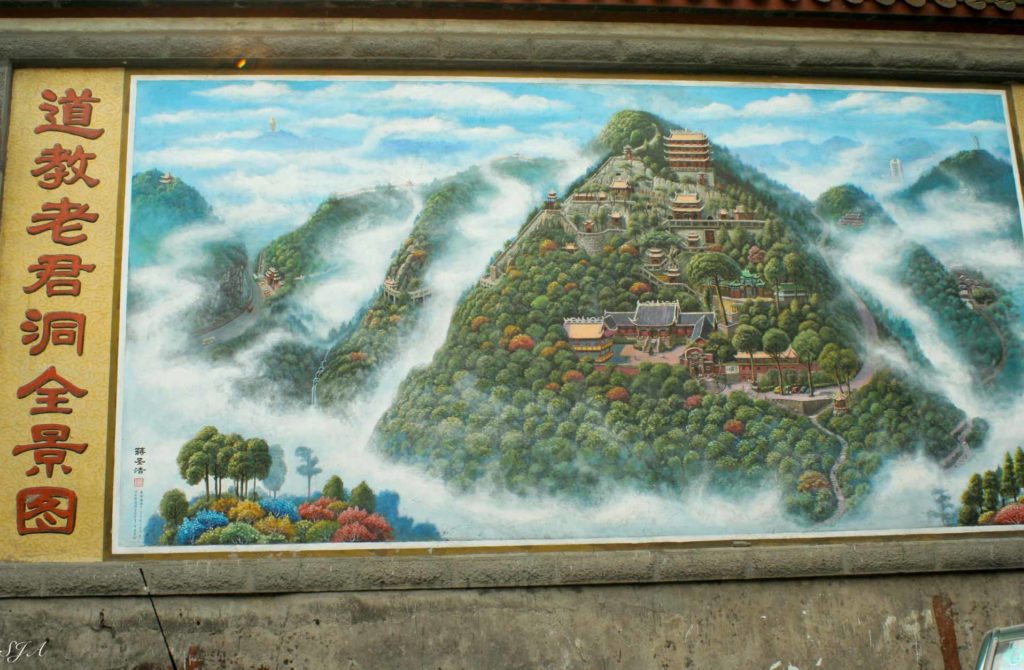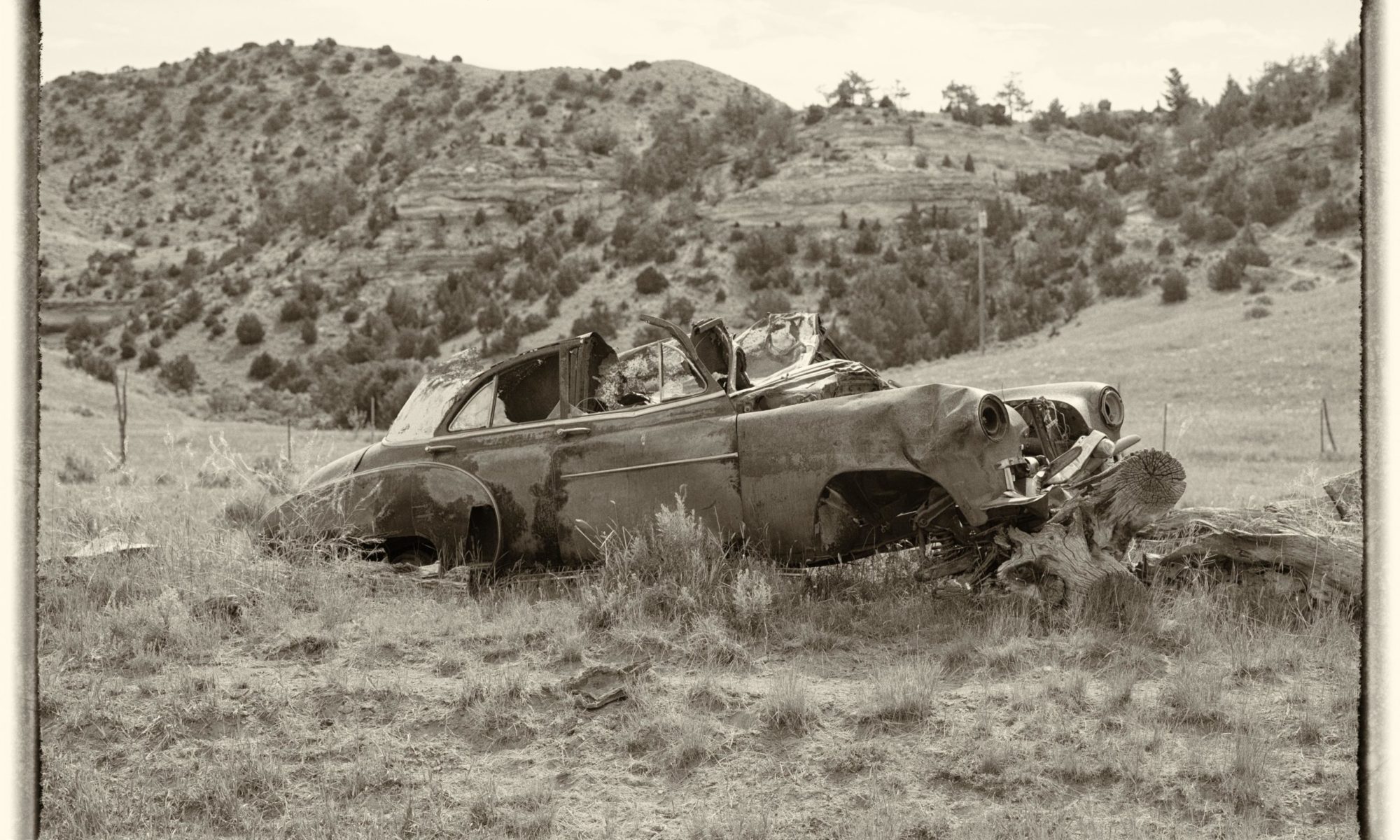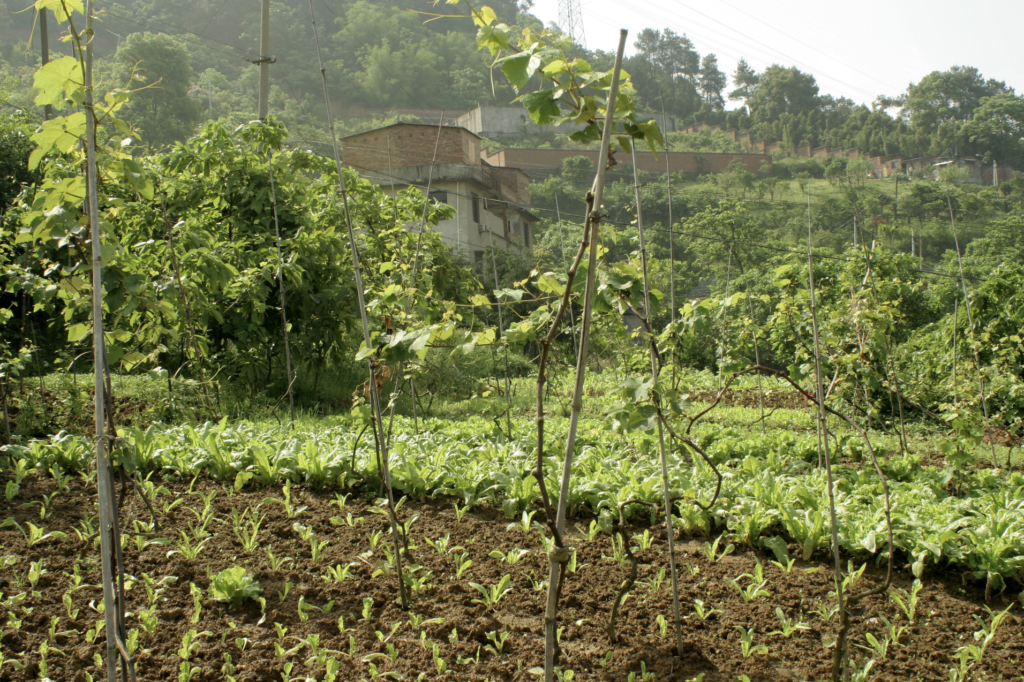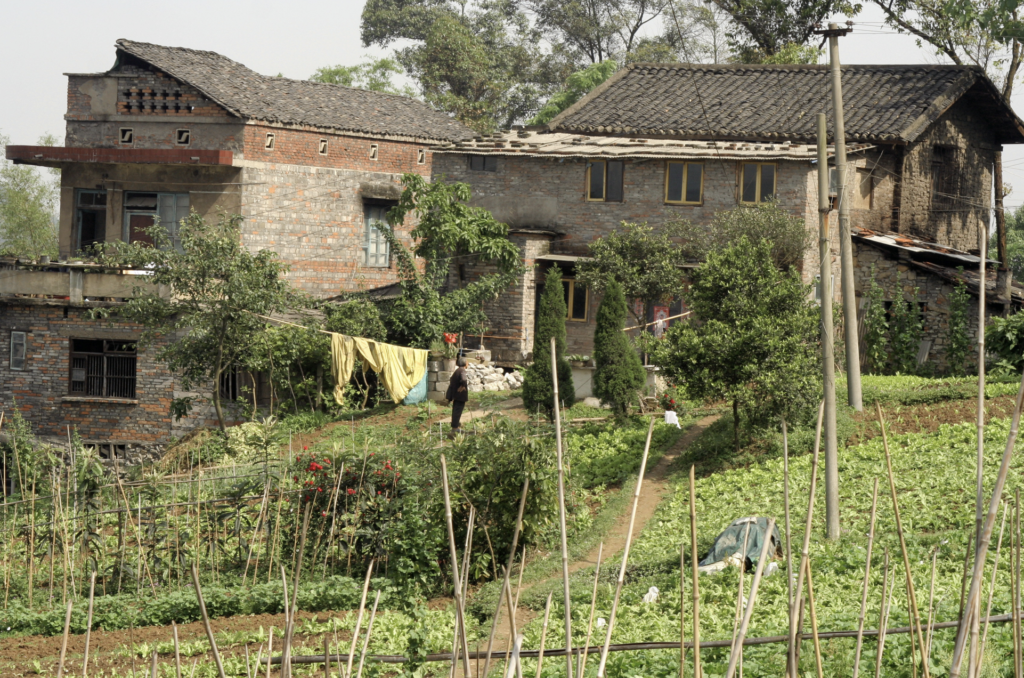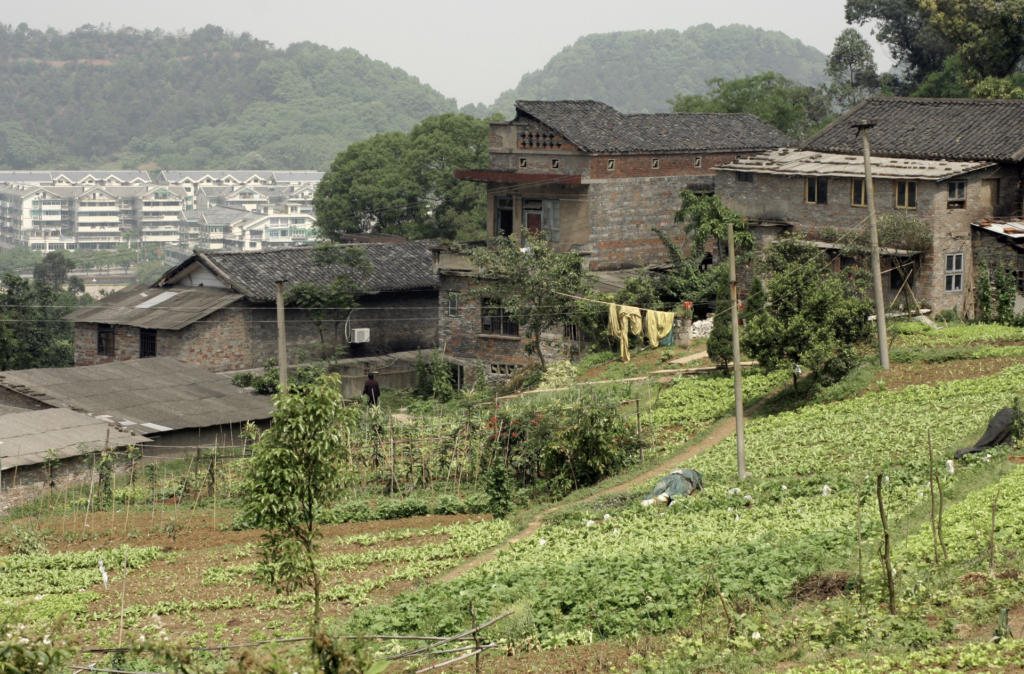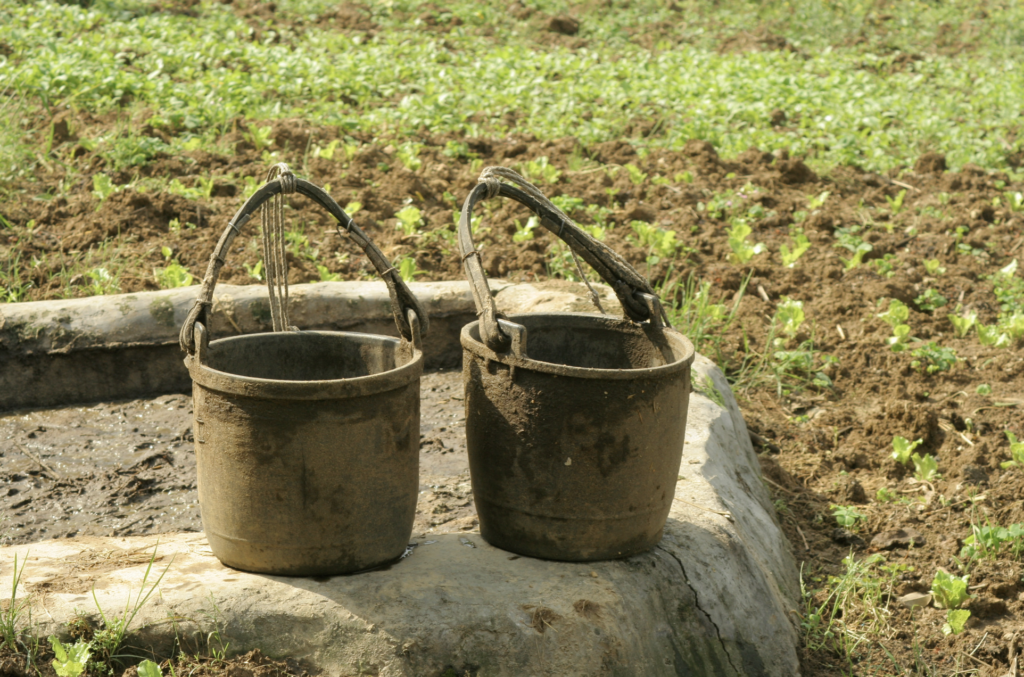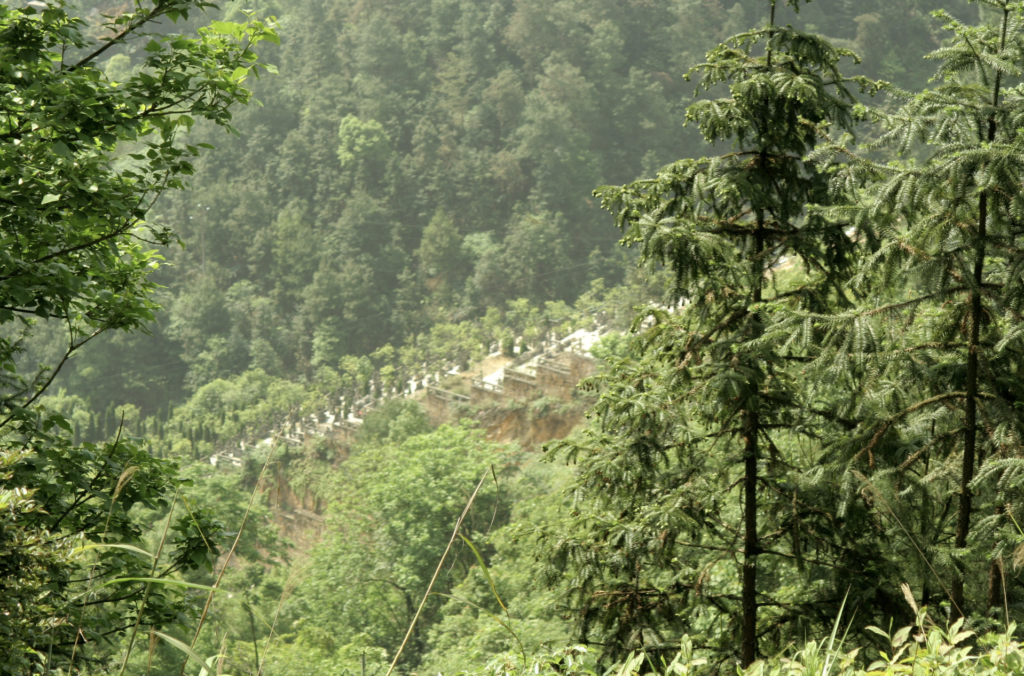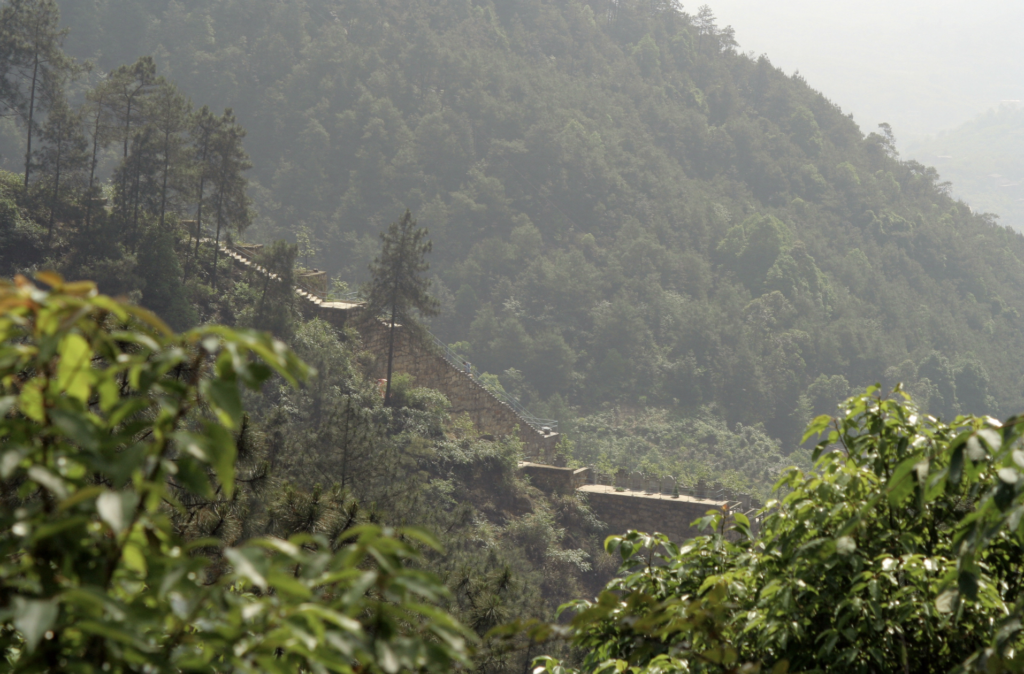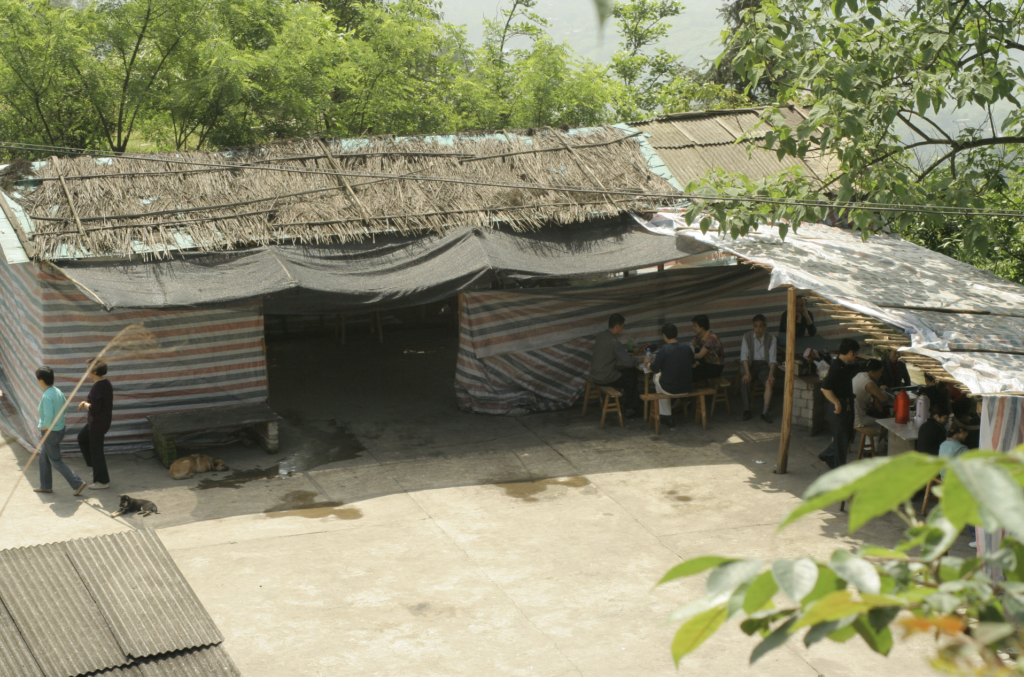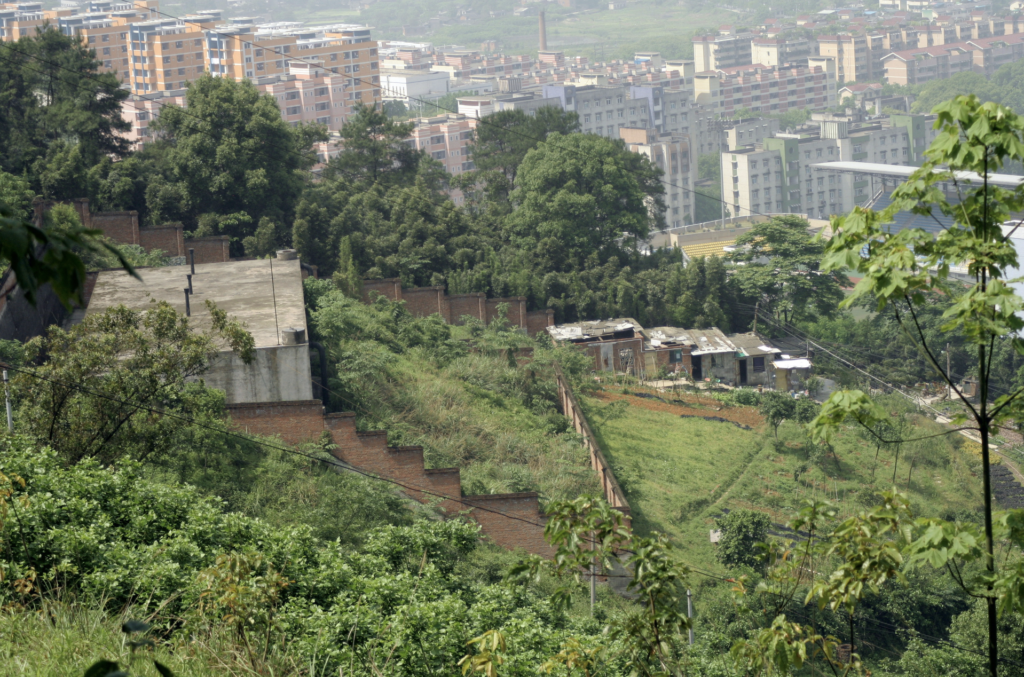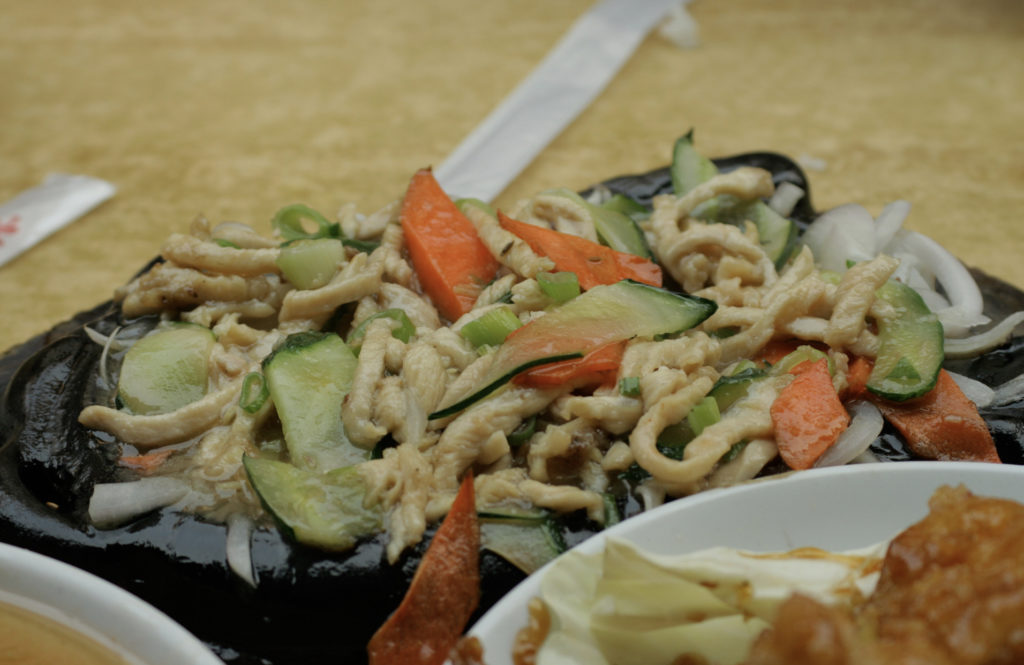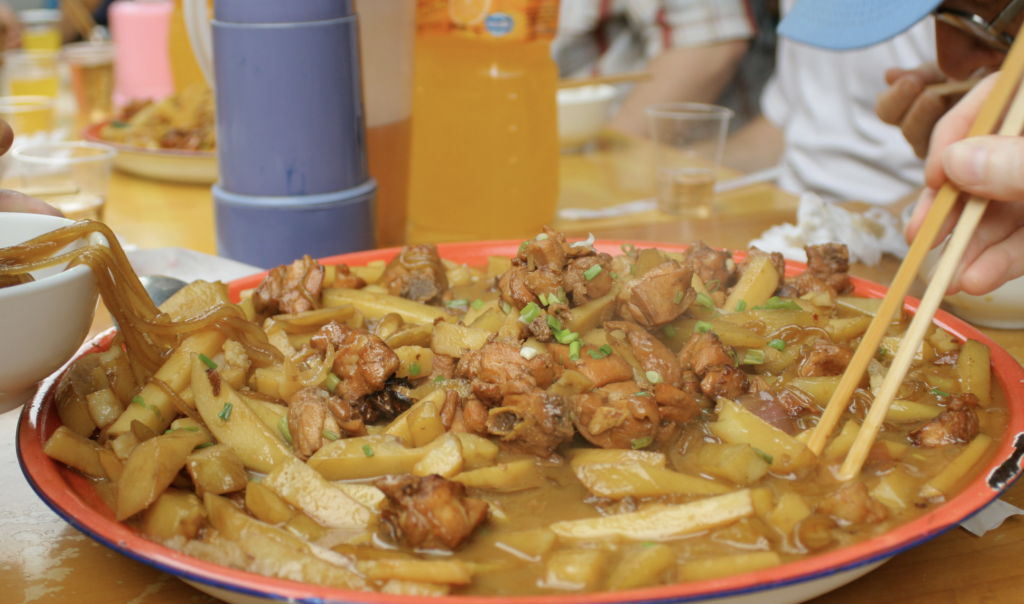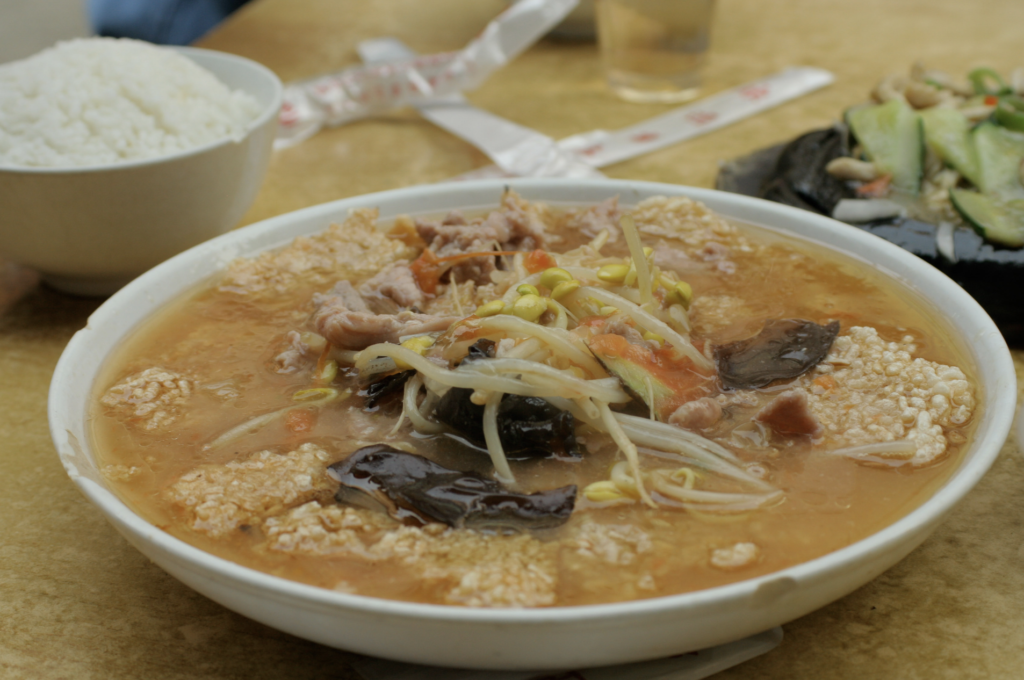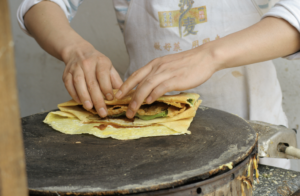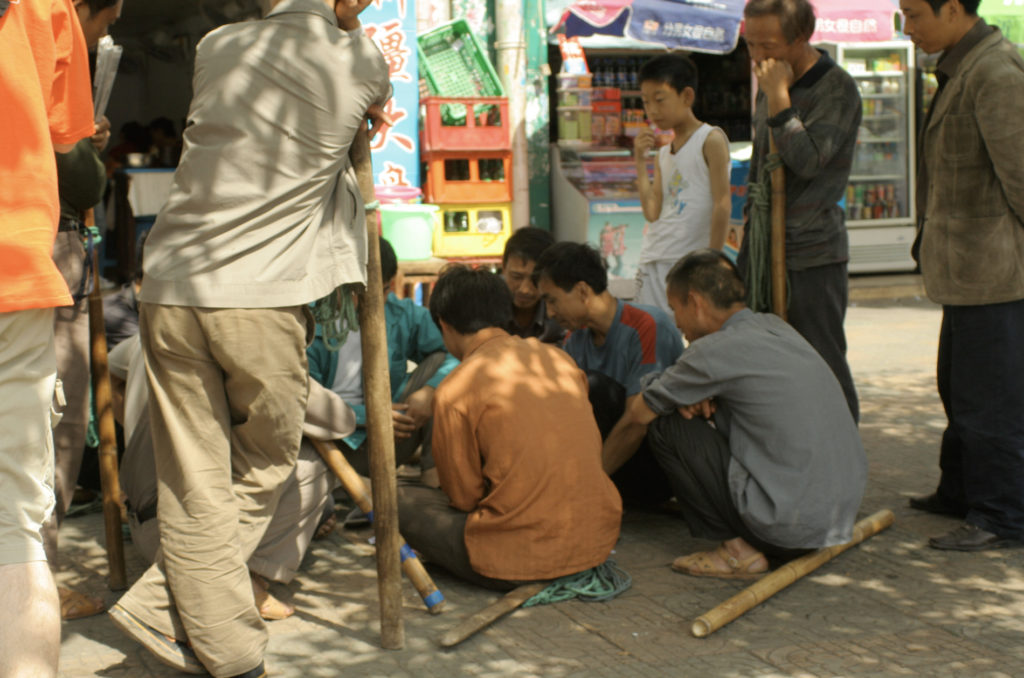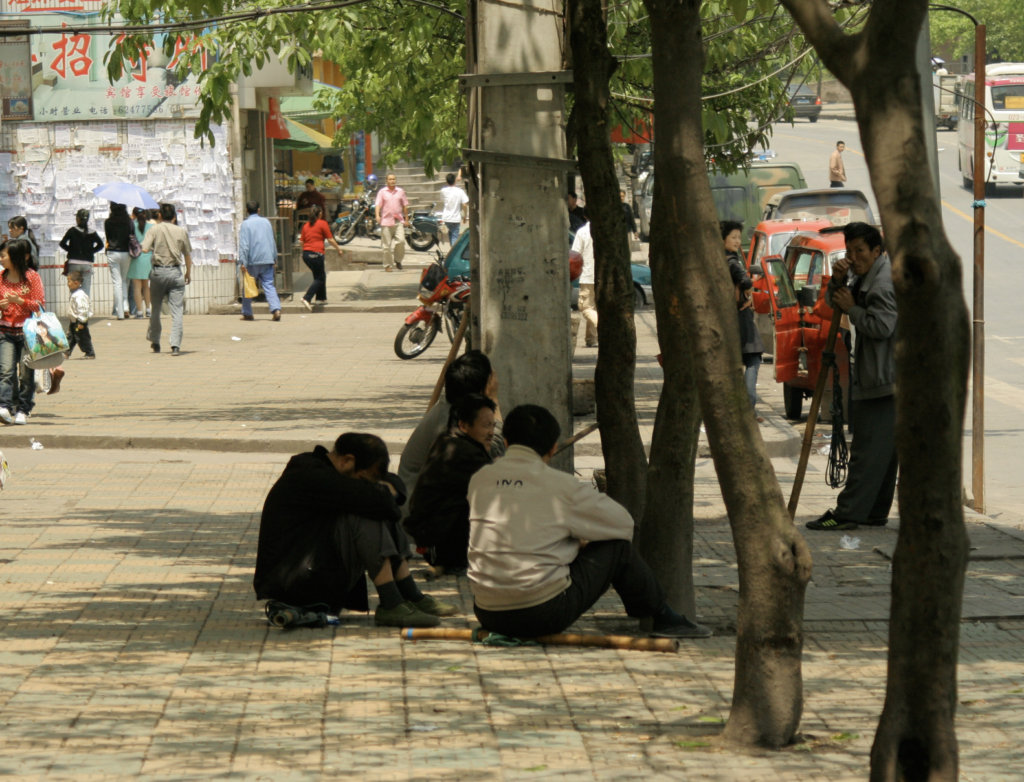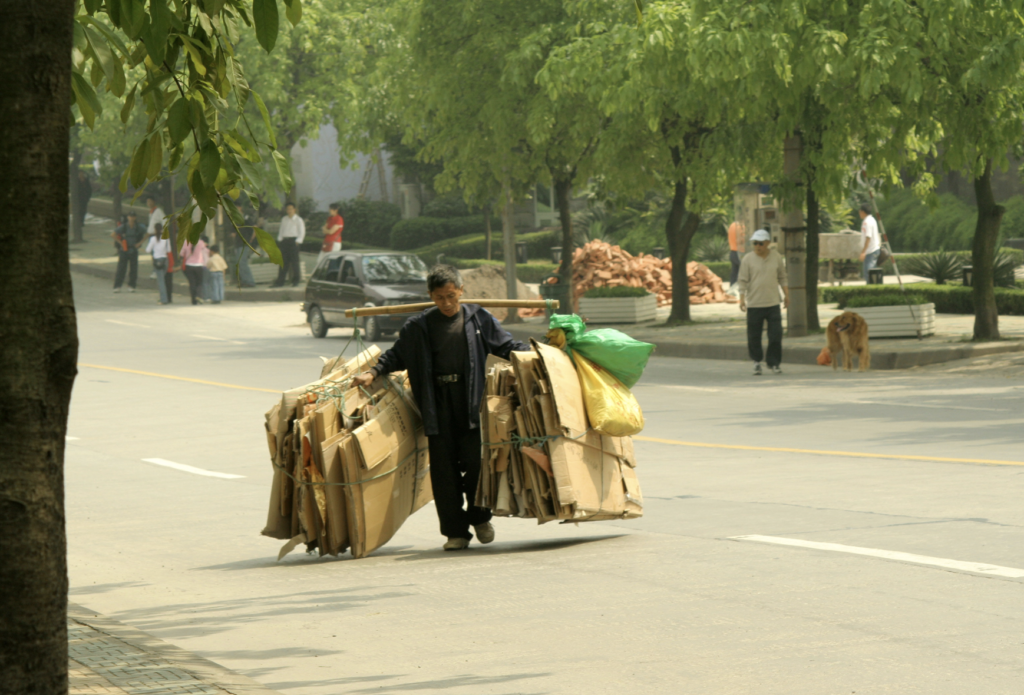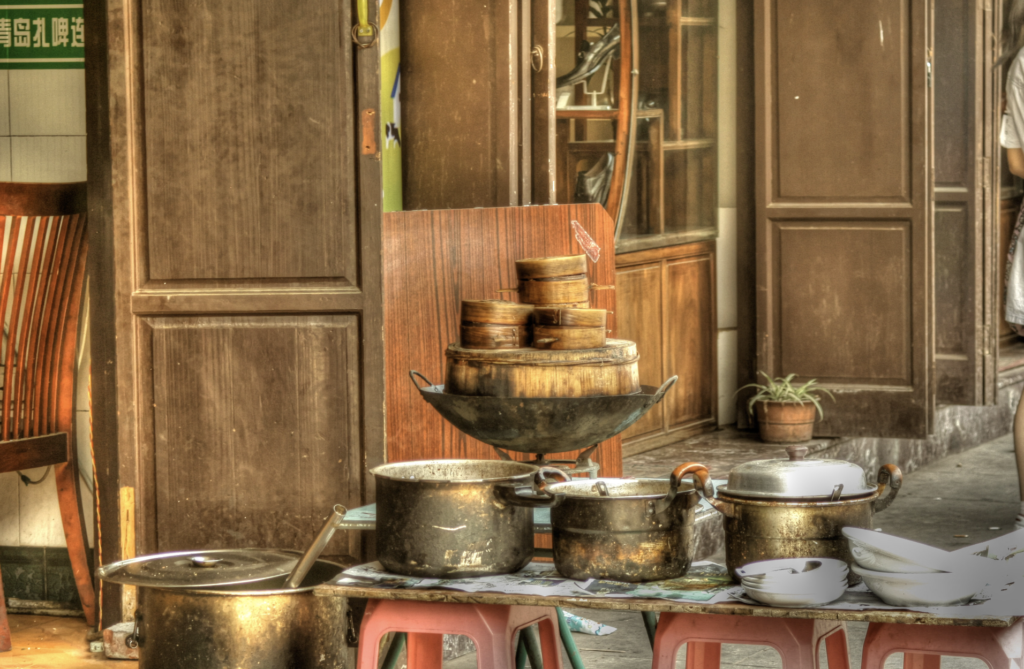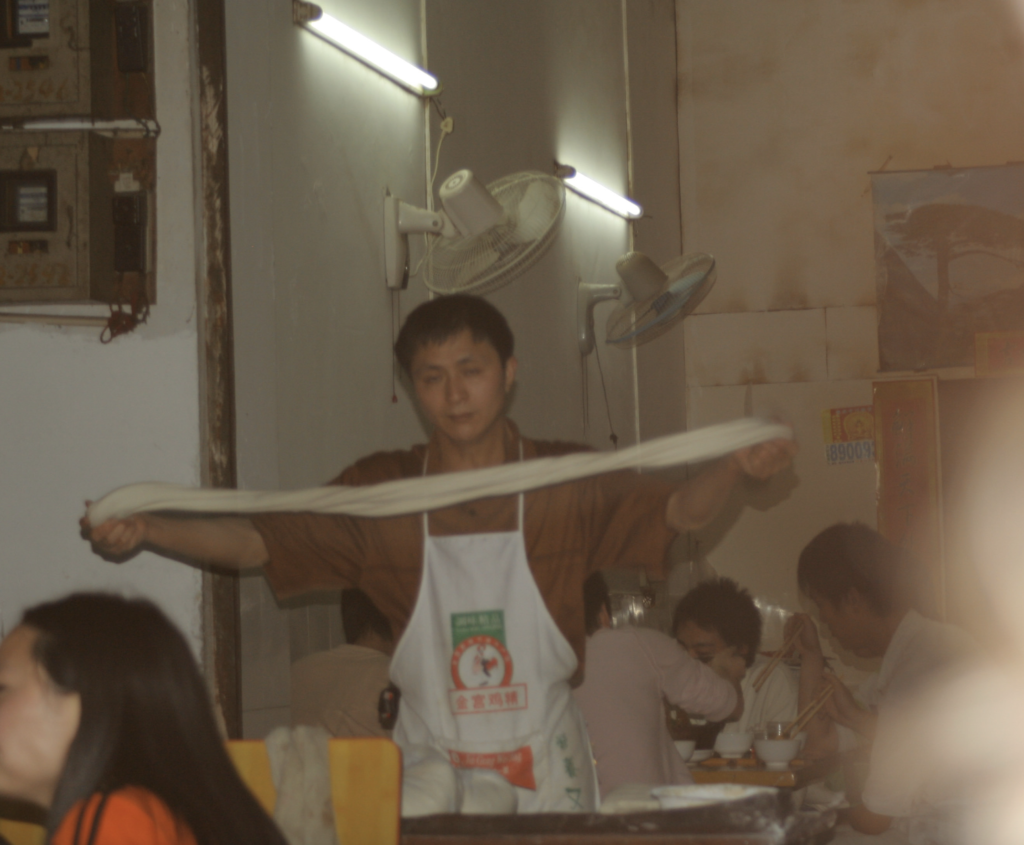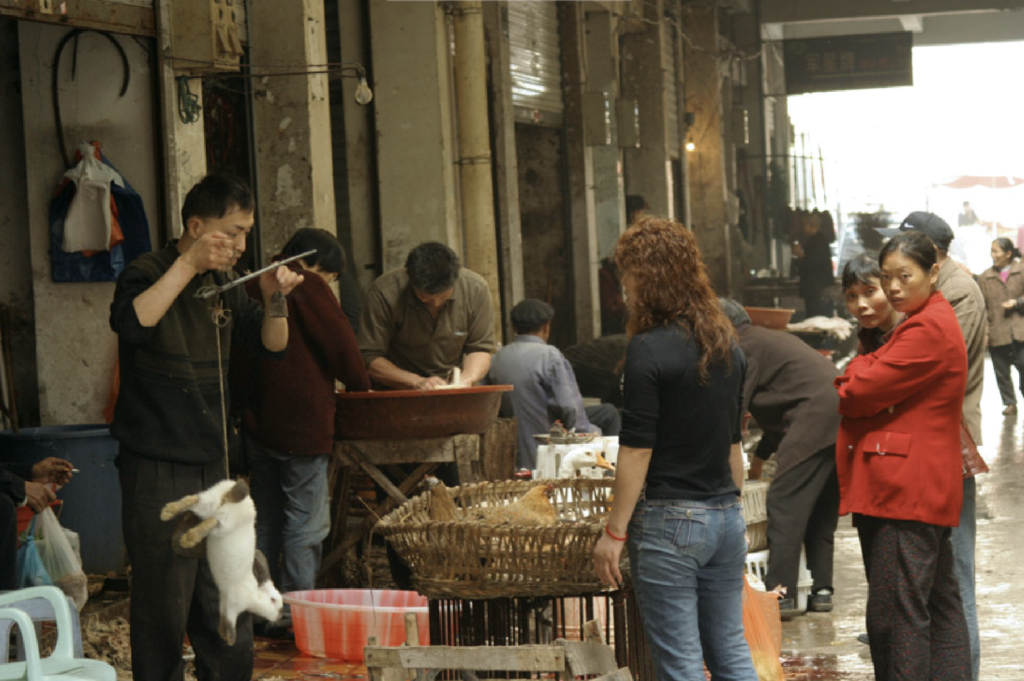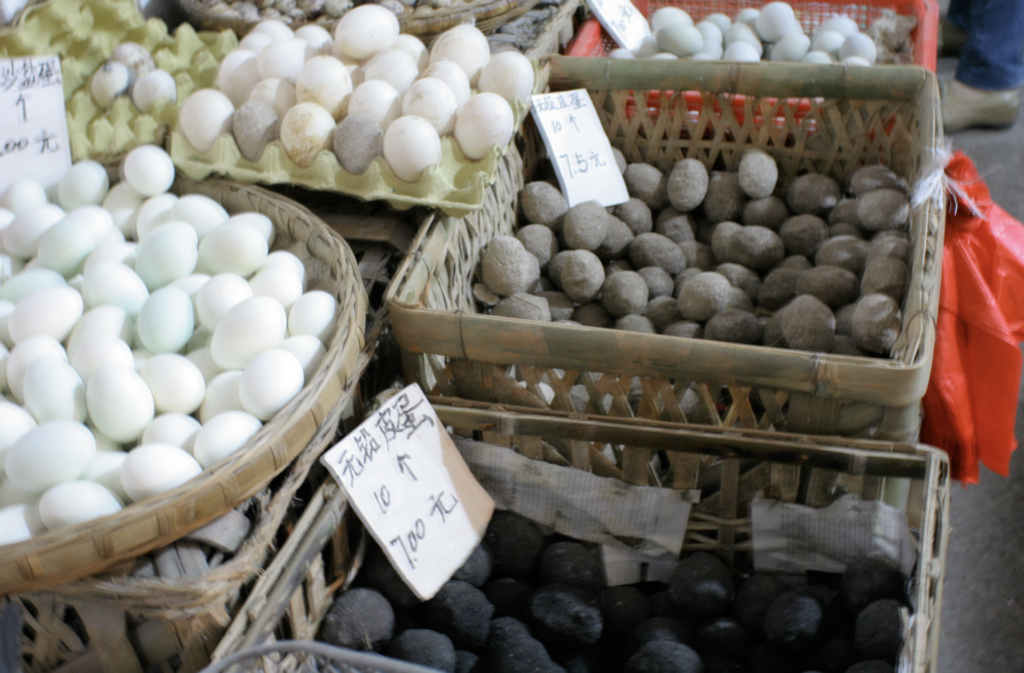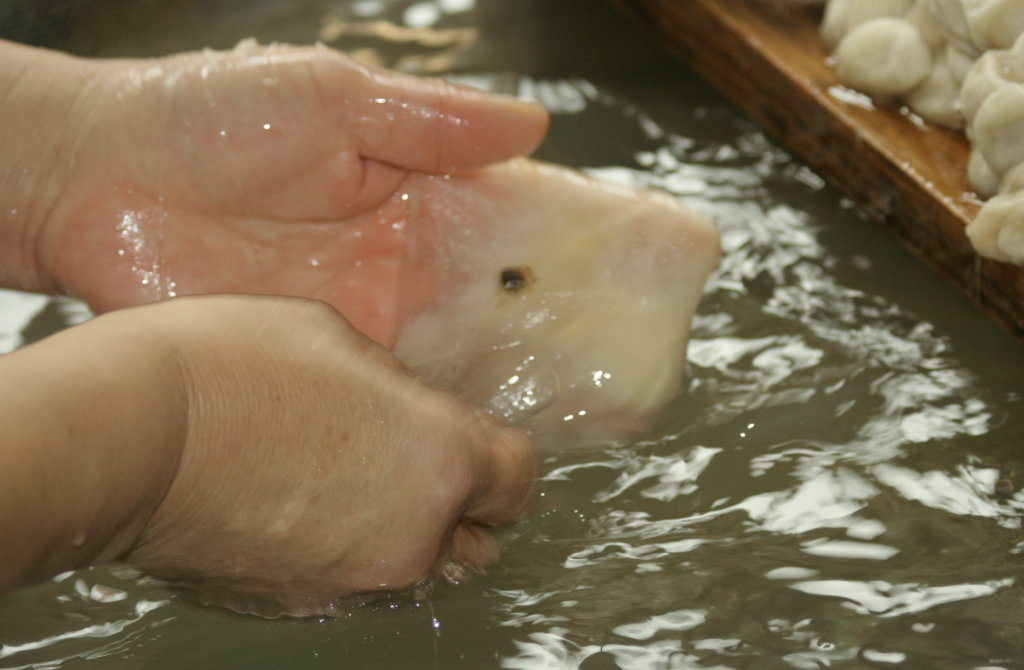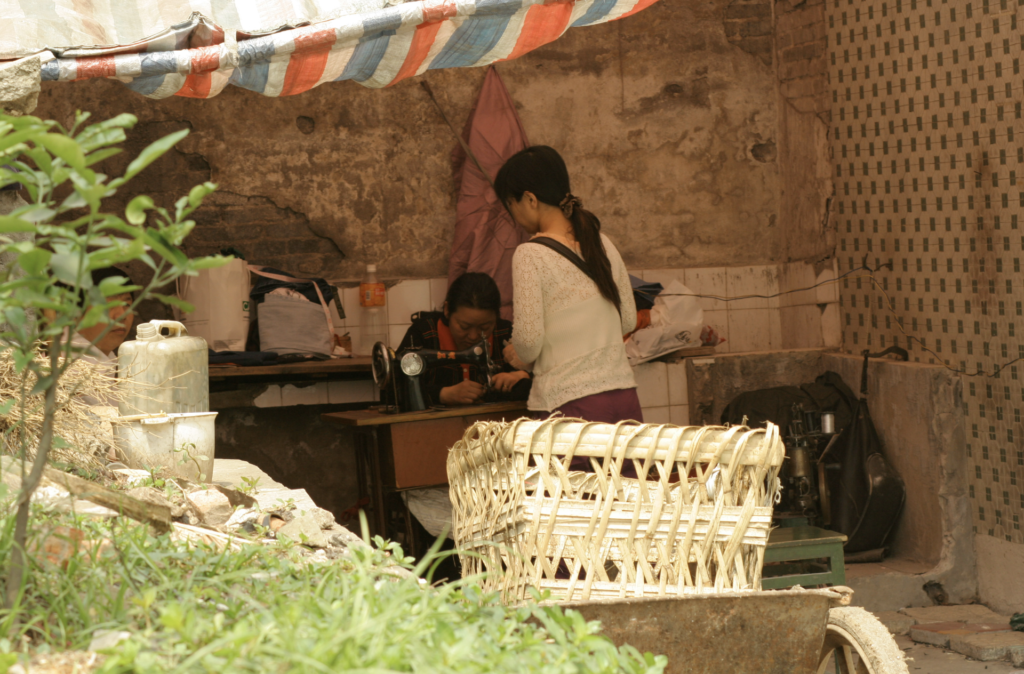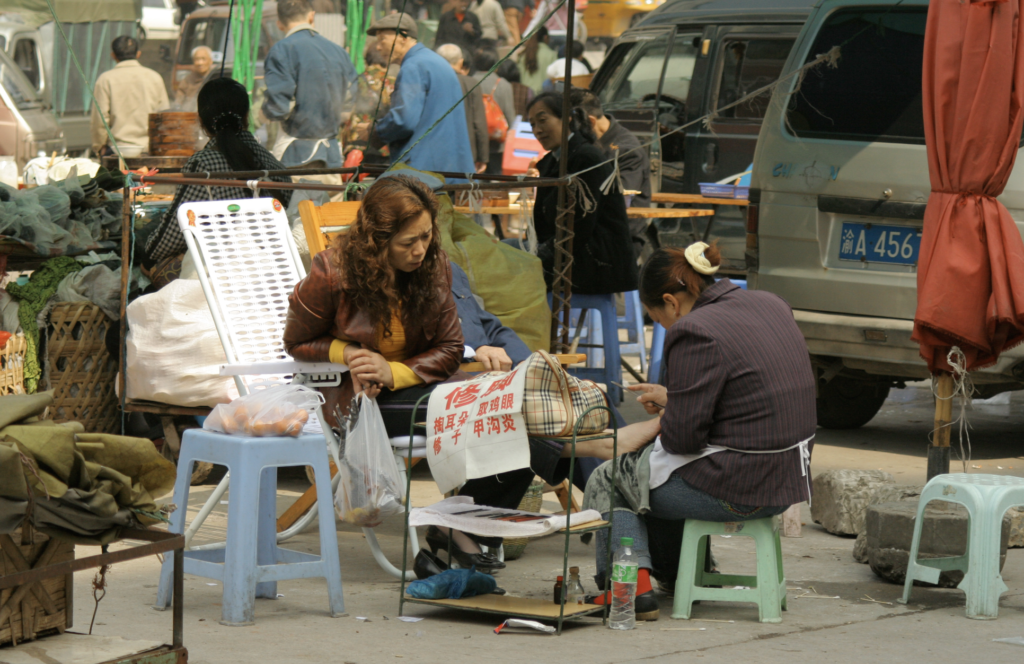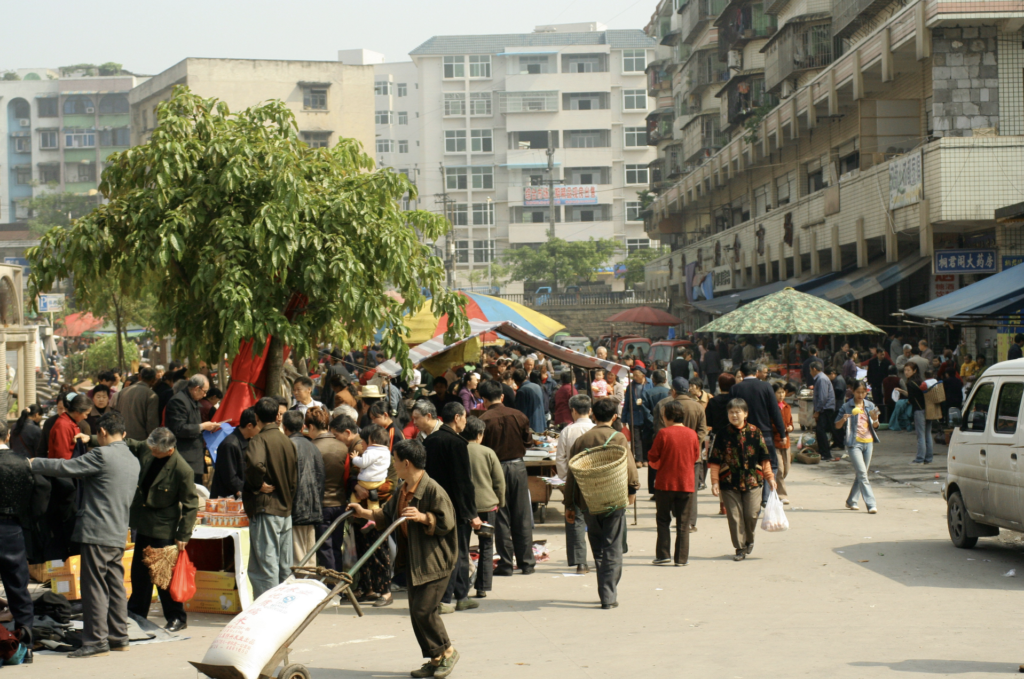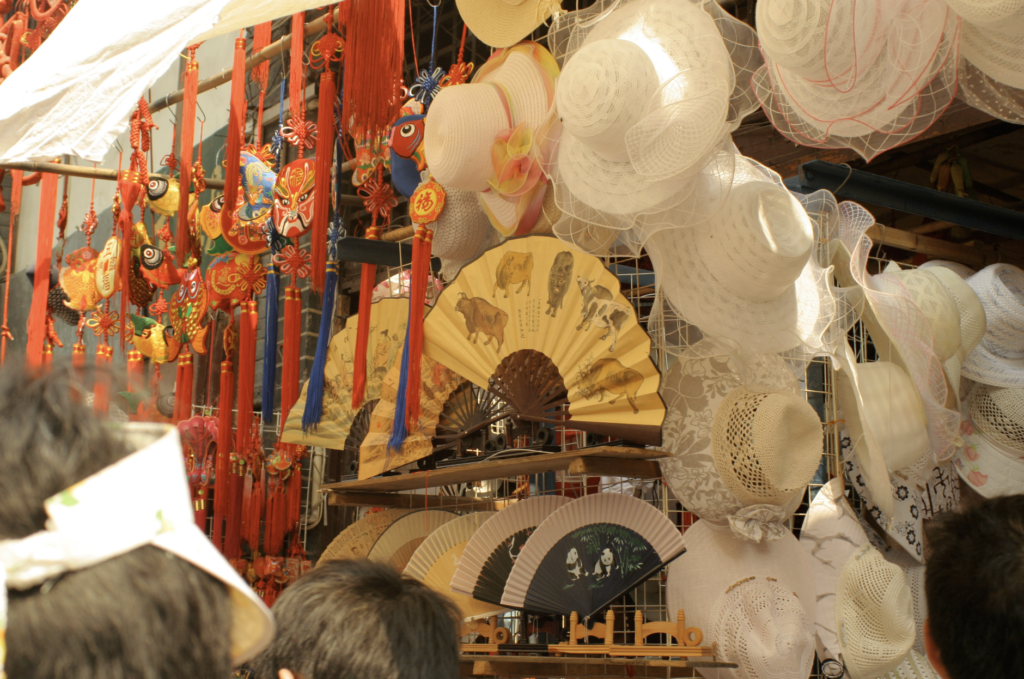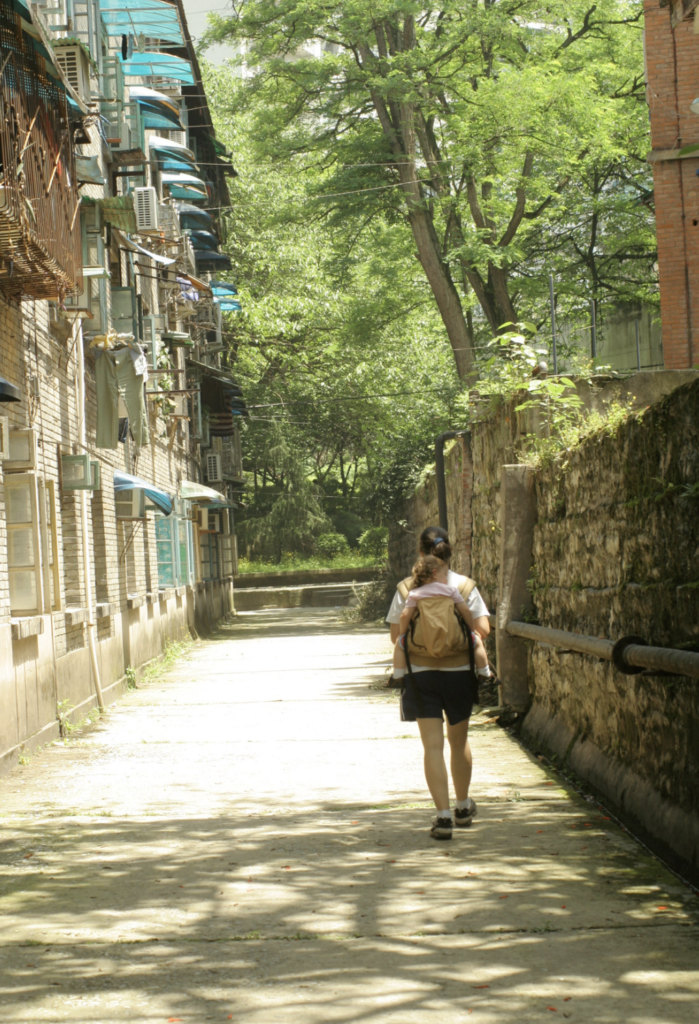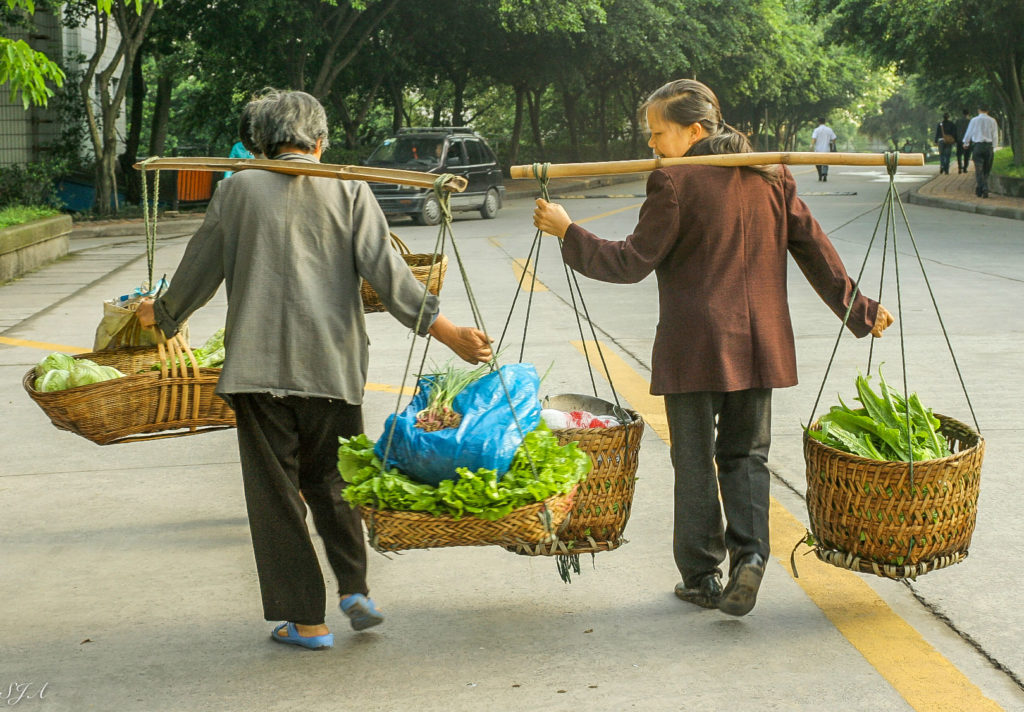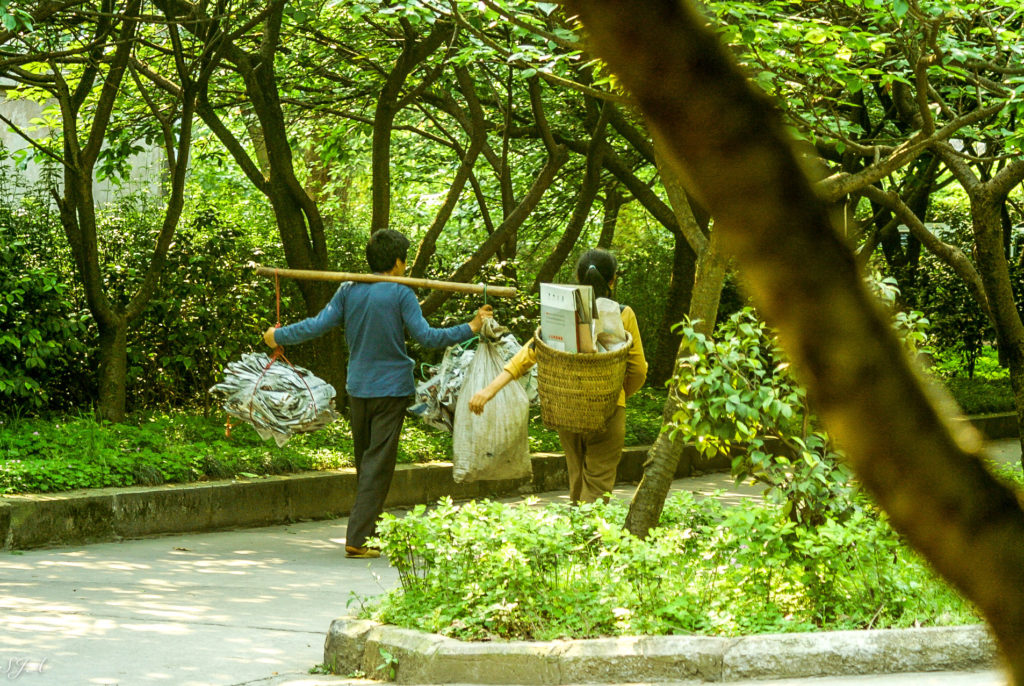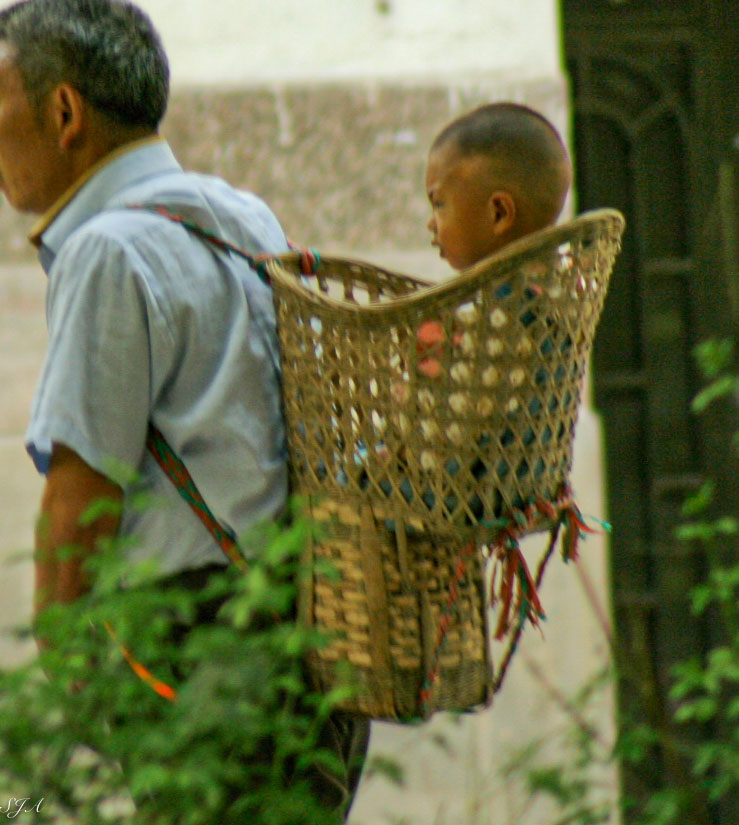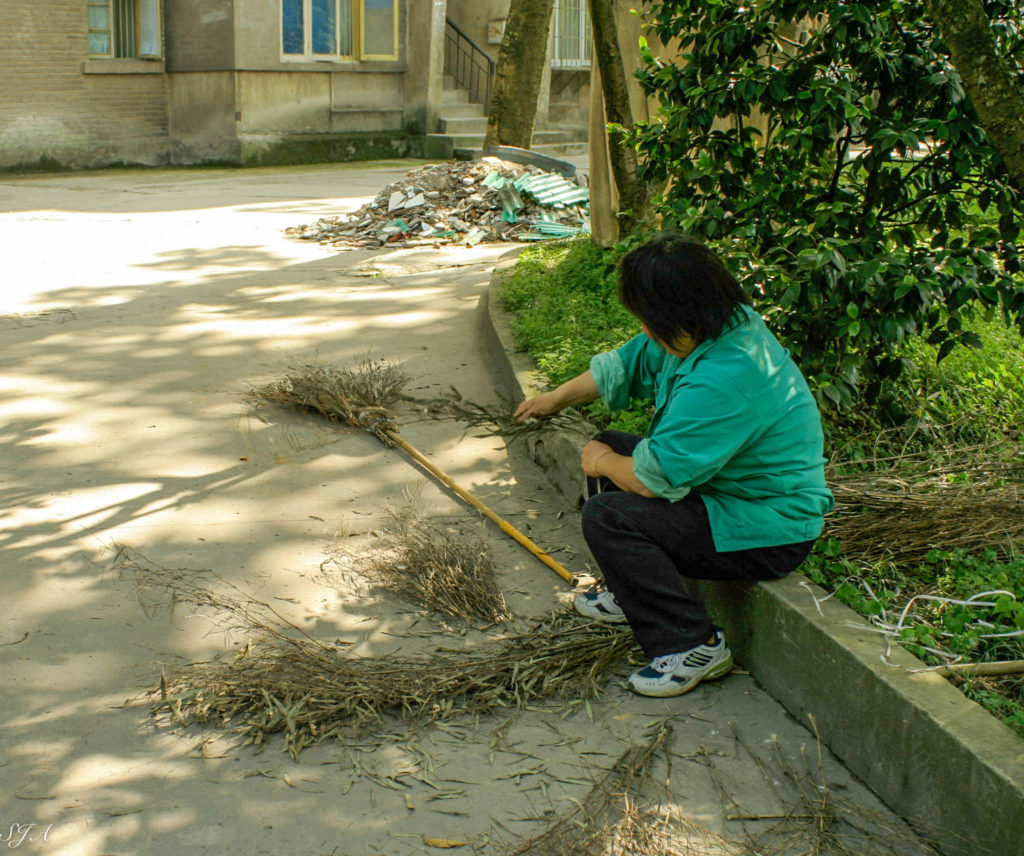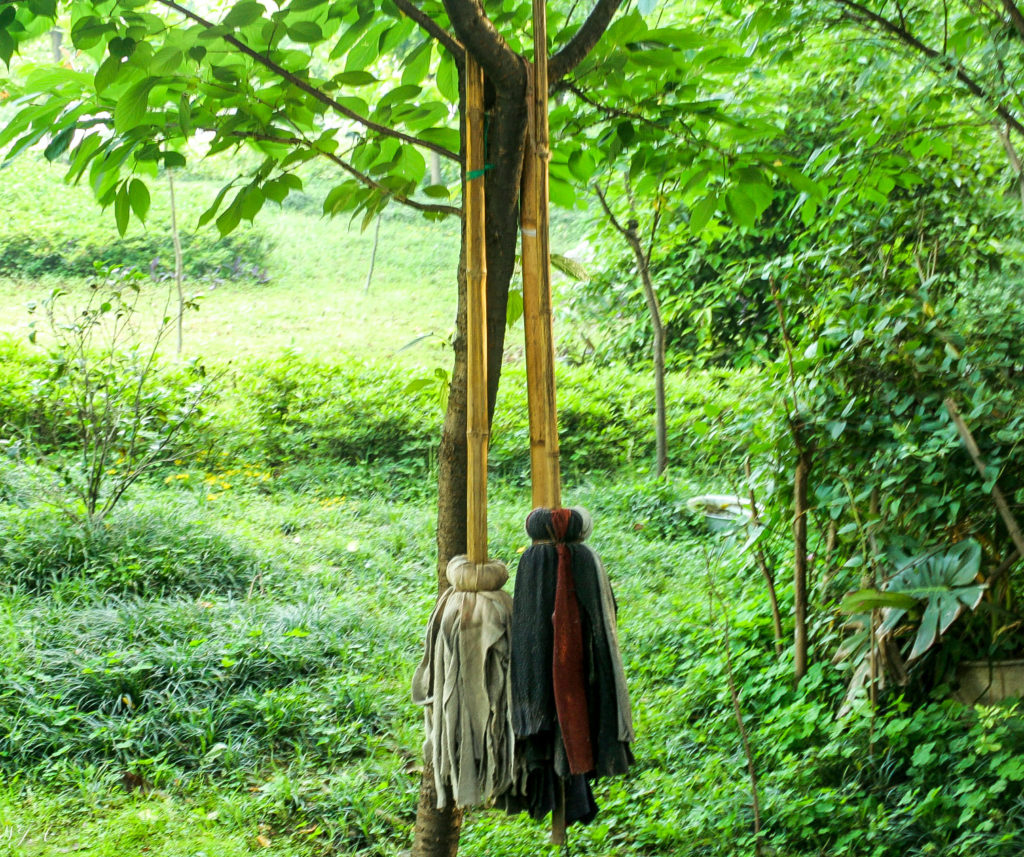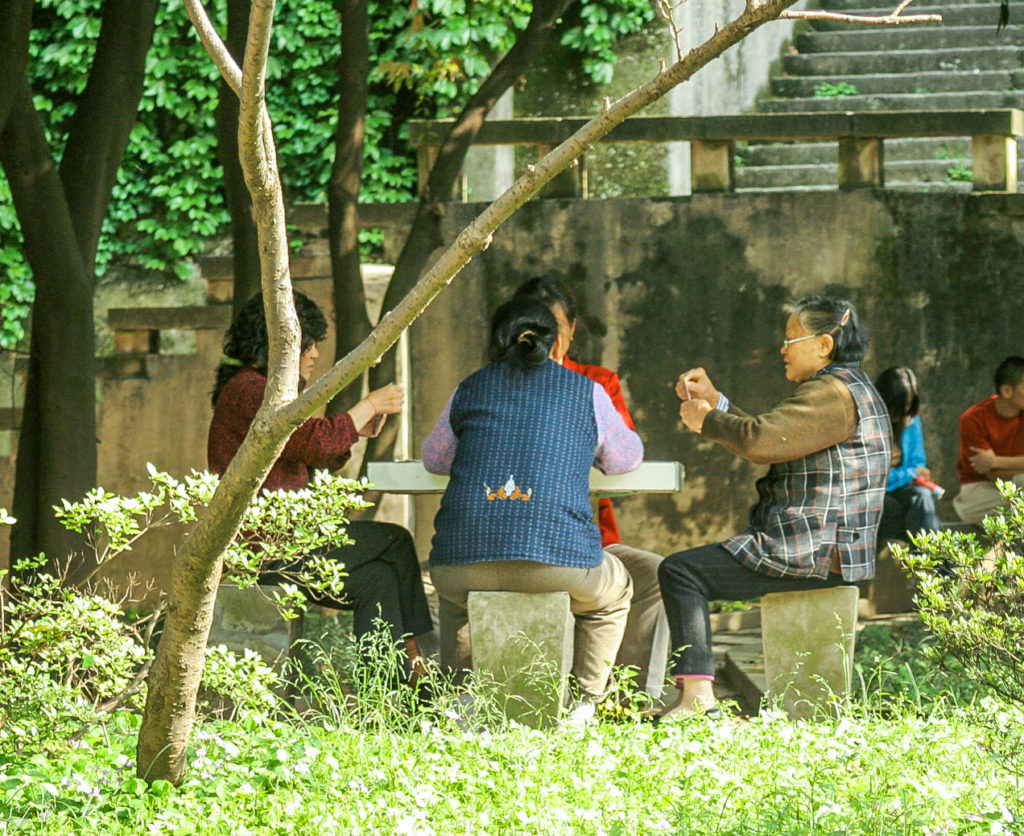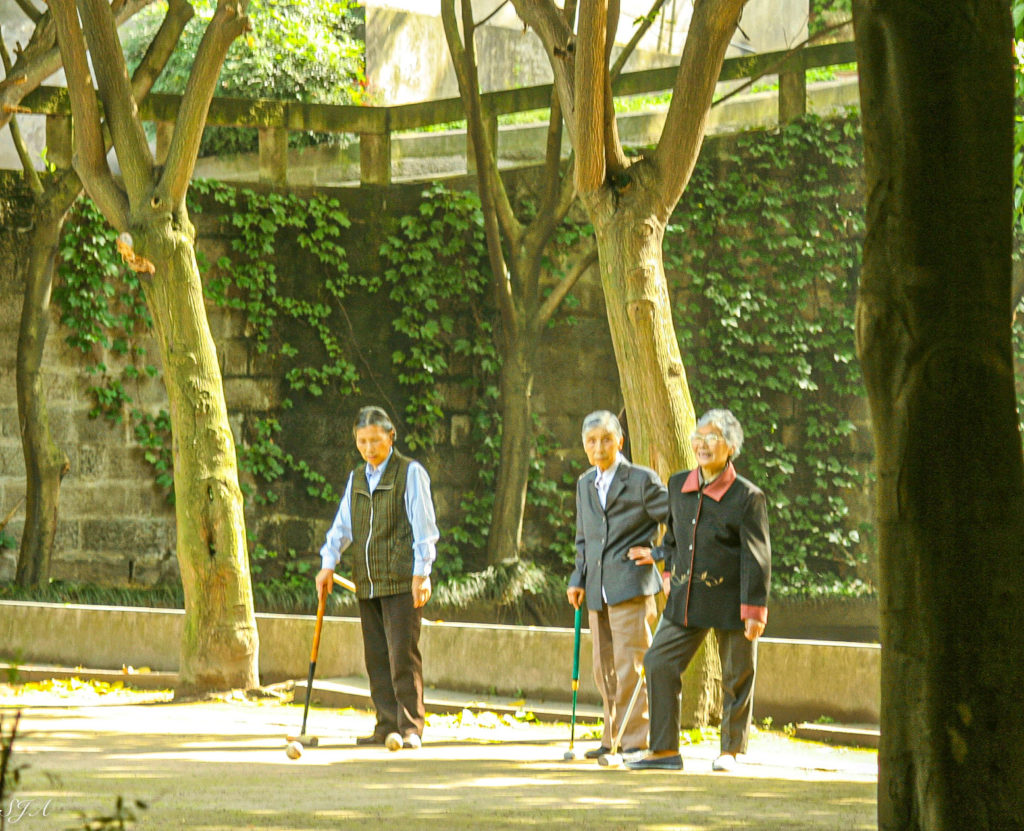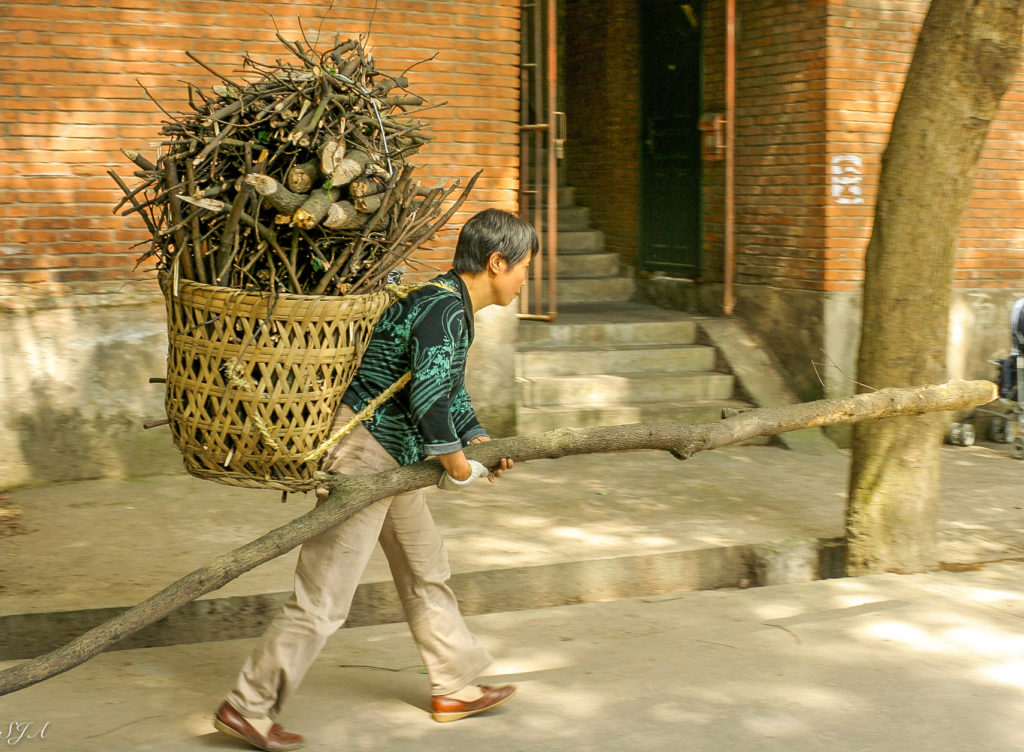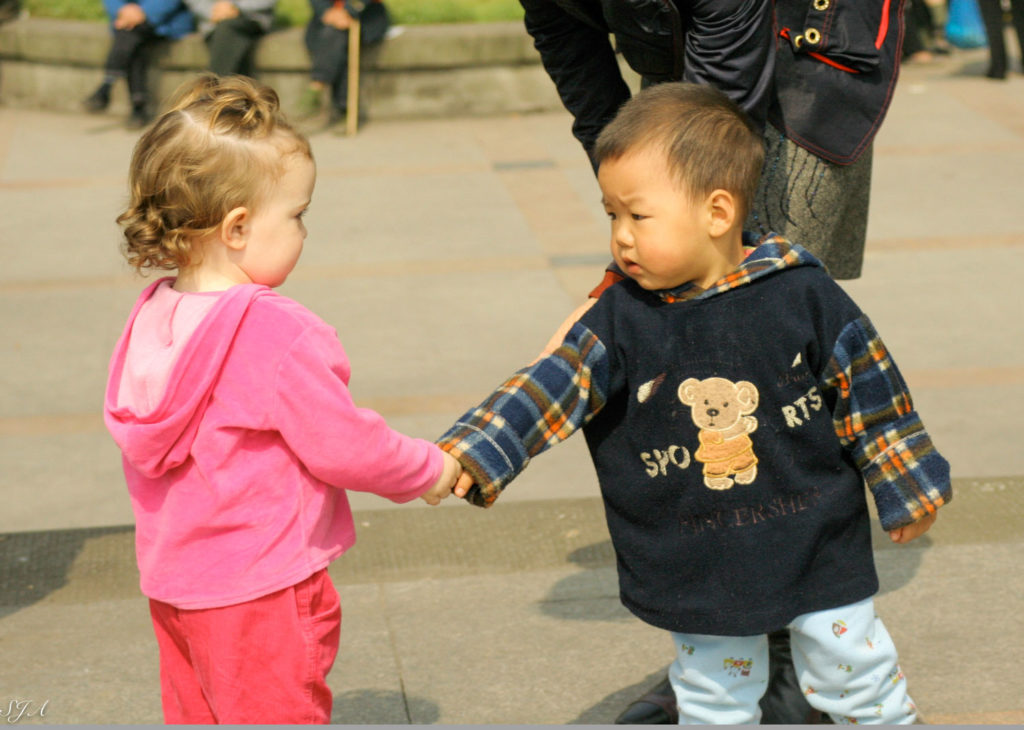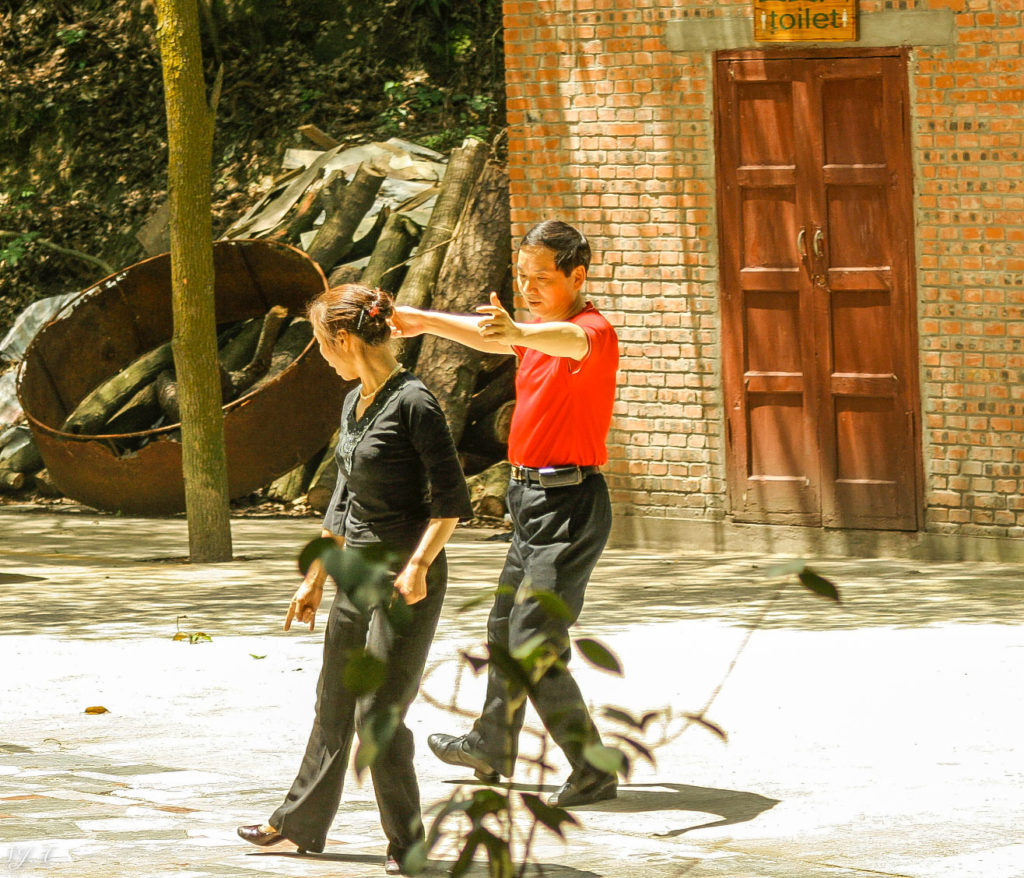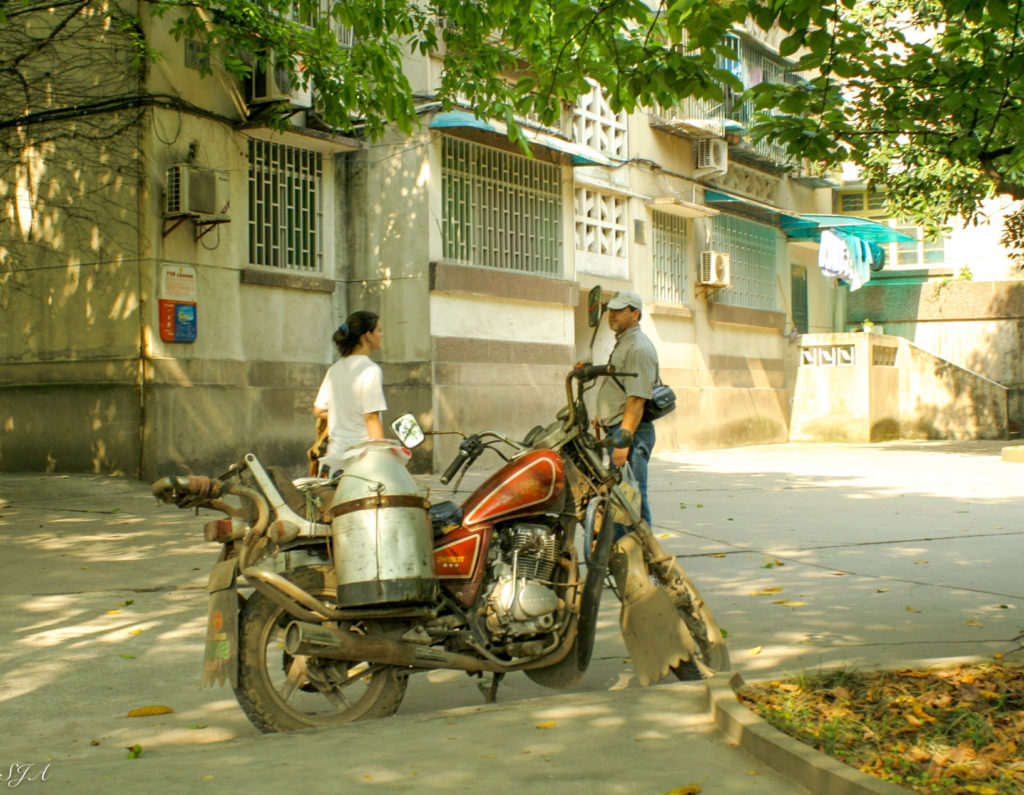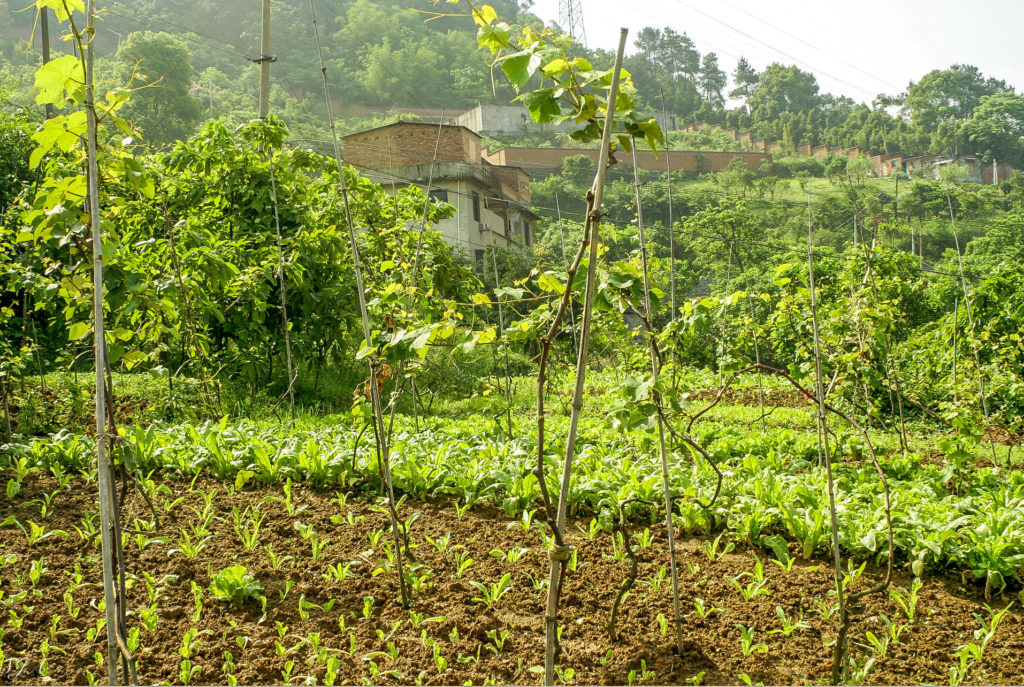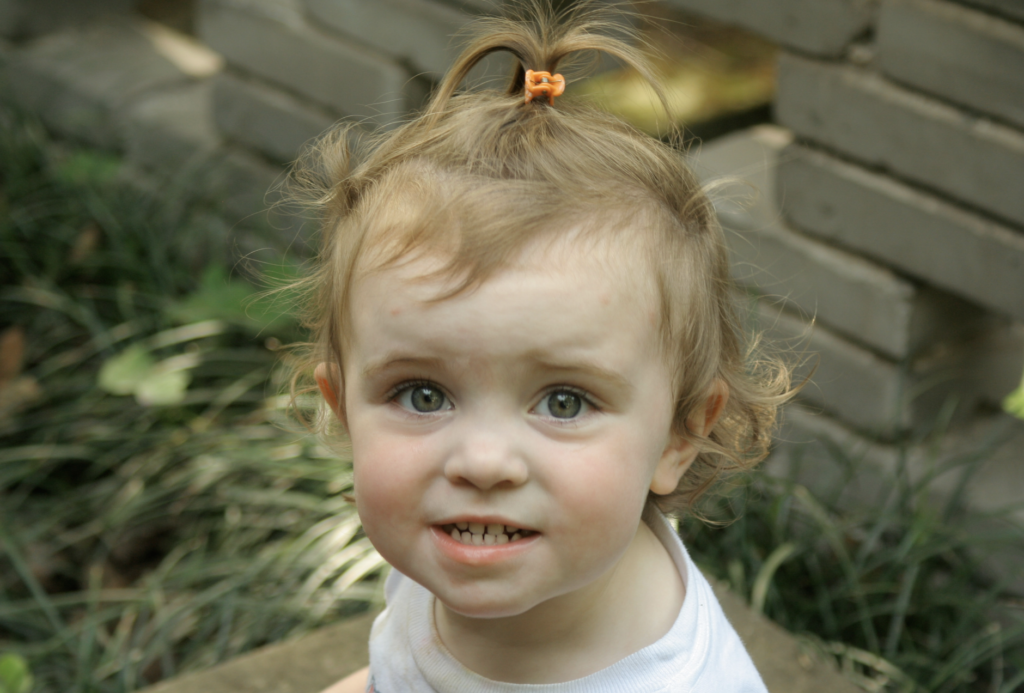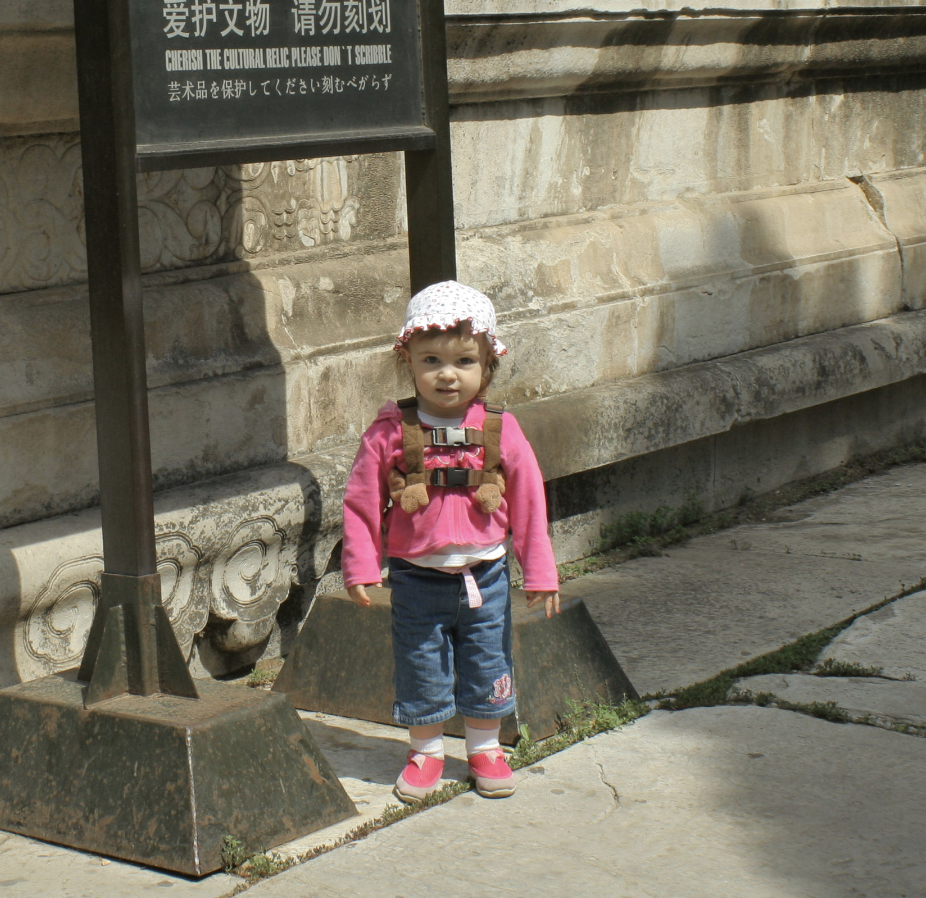The busy streets were even more congested than usual because it was the May Holiday, Laodong Jie. We weaved in and out of the crowds as we walked along the road toward the Taoist temple. One of the University students accompanied us, and it looked as if all the extra people in the city came along, too. At the main gate of the temple complex we were silently greeted by a stone god in a little building. Vendors were nearby to sell candles and incense for visitors to present to the gods. We walked up concrete trails that wound through the trees thick with lush foliage and climbed multiple flights of steps that led to the temple. Through openings in the trees, we got glimpses of worshippers offering sacrifices to various idols that were scattered throughout the temple mount. Dragons perched on the ridgelines of roofs symbolized imperial power, wealth, good fortune, and power over the weather. It was believed the dragon brought rain for the crops and extinguished fires. There were big gods in the main temple area and smaller gods set along the walkways and outcroppings on the slopes that overlooked the city below. Big potbellied decorative iron cauldrons with xieshan roofs looked as if they were on fire. Some worshippers knelt before stone idols housed in booths where they offered food sacrifices. Others placed burning incense of varying sizes and candles in sandy troughs, hoping to please their god. Smoke rose to the stone nostrils of the statues.
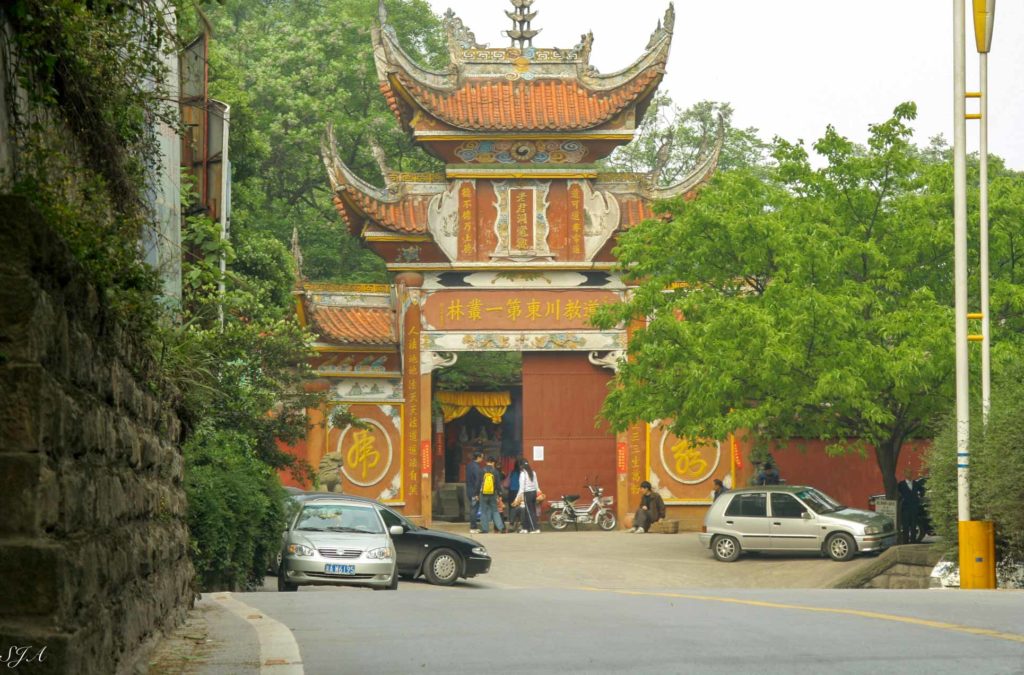
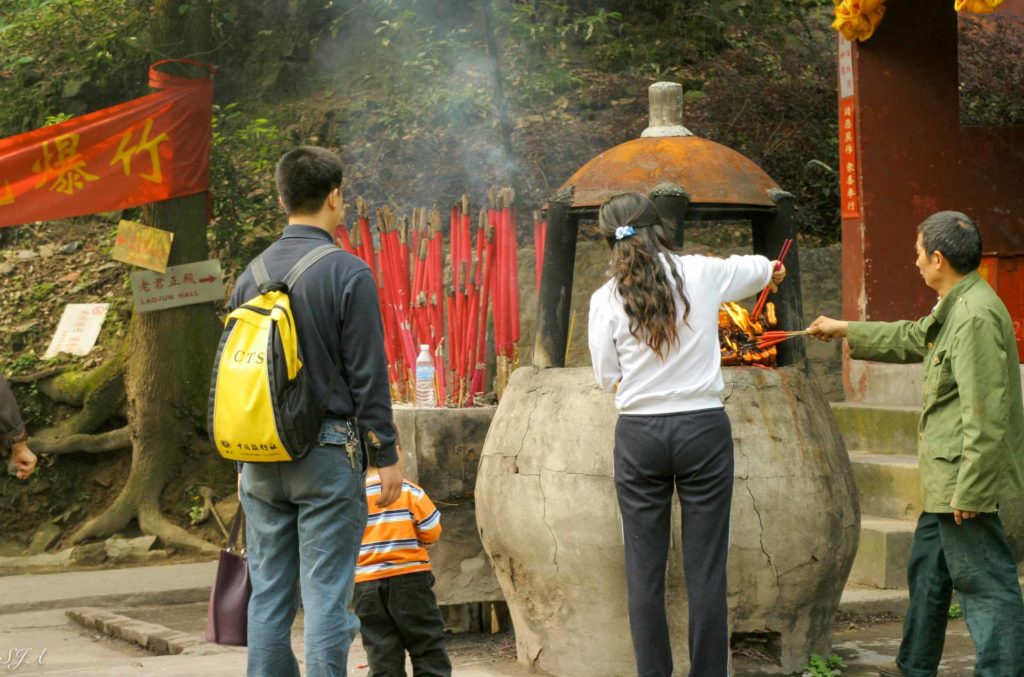
The foul odor of rotted fruit mingled with the smell of burning incense. Clouds of smoke hung heavy in the air as people bowed before cold lifeless images. Thick smoky haze filled the temple as well as the mountain valleys and peaks. The student who went with us told us some of the beliefs of the Taoists as well as other ancient religions. It was an interesting and new experience for me.
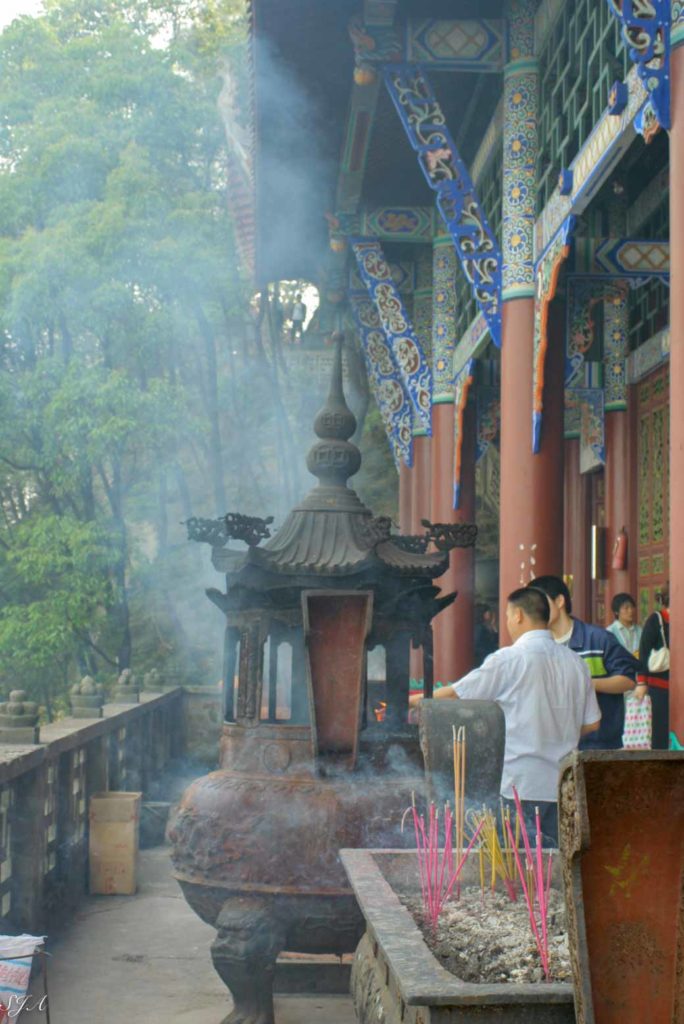
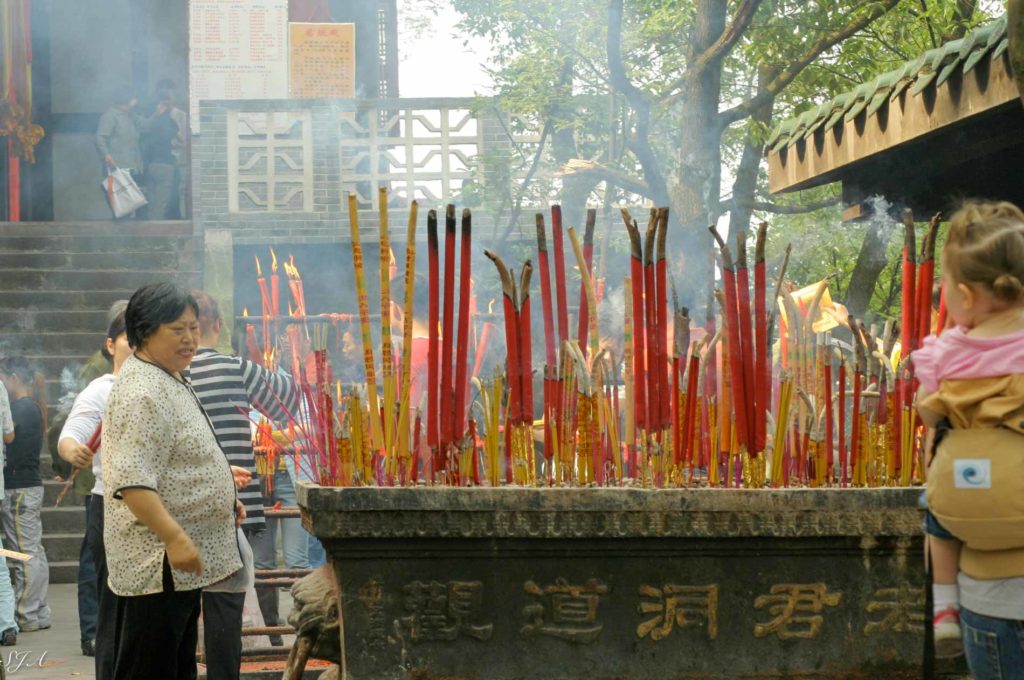
As the week came to a close the crowds lessened though it wasn’t very noticeable. On Sunday, we went to church. It was much different than when I was a kid. Mama would get us six kids clean, neatly dressed, ready to go, and to church on time. If we talked out of turn or wiggled or giggled in church, she would thump us on the head. That was not the way it was in the church we visited. No, on that particular day church was quite different.
To get to church, we walked. In fact, we walked almost everywhere in Chongqing, and it seemed everywhere we walked was up. The streets were busy as people were headed to who-knows-where. We dodged vehicles and people to even get to the street that led up the mountain to the church building. Up, up, up we went. The church came into view, but we still had a steep climb ahead of us. About halfway up, our noses were met with a horrible stench. Some kind of brown liquid poured out of a pipe from the side of the hill. It gushed into a ditch that flowed down the steep roadside giving no indication as to where it stopped. Apartments were on both sides of the road. It was hot and smothery. There was no escape and not one whiff of fresh air. The horrendous odor hung like lead in the air intensifying the smell even more. It was then we realized what gushed from the pipe was raw sewage. By the time we got to the church, some of us were about sick.
We entered the Three Self Church and climbed five more flights of stairs. One service was still in session, so we waited for the second service. We found our seats and after a greeting from the minister to the congregation, there was a time of praise and worship. Of course, I couldn’t understand what was being said. The only word I recognized was “hallelujah.” I guess that is universal. Even though the words of the songs were not familiar many of the tunes were. We were able to sing along to most of the songs in English which was a stark contrast to the Chinese words that were sung. The minister delivered his preapproved message to a somewhat distracted congregation. My mother would have had a heyday in there!
During the service a lady swept the floor, people talked on cell phones, ladies got up from their seats to see and touch our little girl, a dog wandered in, communion cups fell to the floor while at least a dozen people got up to see what was going on, a lady scolded a girl across the aisle for something, and the same lady visited at least three other women and chatted with them, and I watched – every bit of it. When the service was over, I decided that even though I didn’t understand the language, I understood as much as anyone else in the congregation. Yes, if my mother would have been there, boy oh boy, she would have had a good time!
After church, as we walked back through the busy streets to get lunch, I thought of all I had seen and experienced. One thing was for sure. The culture and beliefs of these people were evident in their day-to-day lives – their gardens and farms, the markets, the courtyards filled with dancers, the grandparents tending the children, their worship, and even those things considered inappropriate in our corner of the world. Yet, there were likenesses, one of which was taking time to worship.
